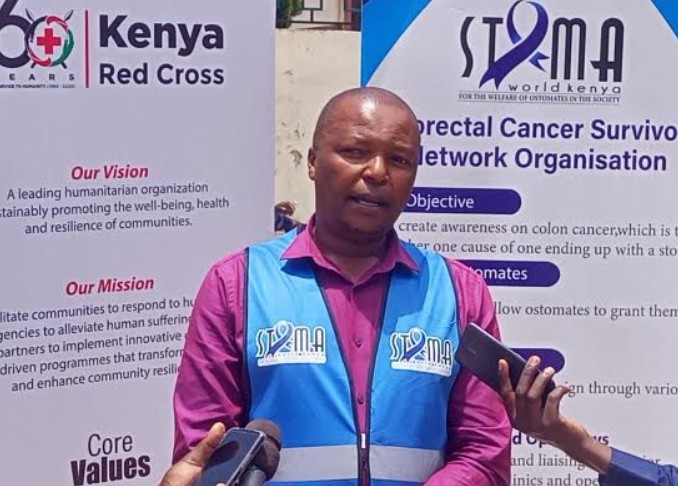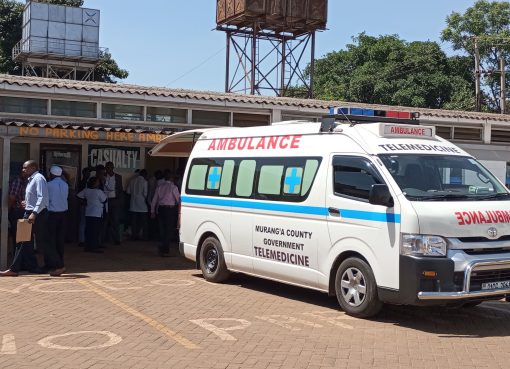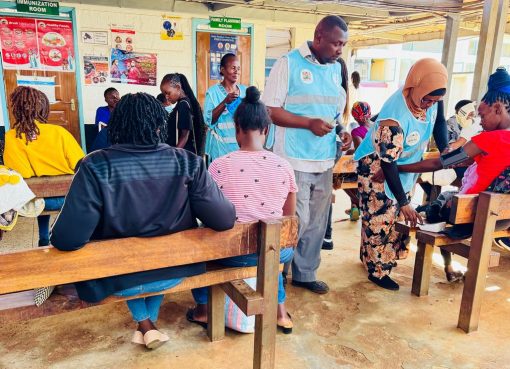Stoma World Kenya, a non-governmental organisation, has partnered with the Kenya Red Cross Society Kirinyaga Chapter to raise awareness about colon cancer and improve the quality of life for survivors across the country.
The initiative, launched on March 1st this year, is International Colon Cancer Awareness Month, which aims at fighting stigma, advocating for better healthcare policies, and providing home care support to survivors, especially those in remote areas who struggle to access medical services.

Stoma World Kenya provides patients living with ileostomies, urostomies and colostomies with essential care and support.
Therapist Lawrence Gichini from Stoma Kenya said colon cancer remains one of the least understood and most stigmatised diseases in Kenya. Survivors (ostomates) not only battle the physical and emotional toll of the illness but also face discrimination due to misconceptions surrounding the condition.
“Many colon cancer survivors rely on stomach bags, which are crucial for those who have undergone surgery to remove part of their colon. We are trying to create awareness on cancer screening and ending stigmatisation,” Gichini said.
During the awareness event at Kerugoya Hospital Cancer Centre, Kirinyaga County Kenya Red Cross Chairperson, John Gathiga, emphasized the importance of reaching marginalized communities, noting that their partnership with Stoma World Kenya allows them to extend support to patients who might otherwise be forgotten.
“Many colon cancer survivors suffer in silence, lacking access to the necessary medical care. By working together with organisations such as Stoma World Kenya, we hope to ensure these patients receive treatment, emotional support, and dignity,” the chair said.
Eunice Njeri, a colon cancer survivor diagnosed in 1998, shared her experience, shedding light on the challenges that patients face daily. She noted that the high cost of stoma bags makes life even more difficult for survivors, many of whom cannot afford to replace them regularly. Despite these hardships, she expressed gratitude to Stoma World Kenya for stepping in to help survivors access these essential supplies.
“I request the government lower screening costs and distribution of stoma bags for free to ensure that survivors can live with dignity. I also ask those who have the disease not to hide because of the condition but to step up and get support.”
Njeri, who currently works as a taxi driver, encourages the survivors to perform normal duties to improve their living standards.
Mary Wanjiru, another survivor and member of Stoma World Kenya, echoed her sentiments, emphasising the need to break the stigma surrounding colon cancer.
She noted some communities associate the condition with a curse, making it difficult for patients to integrate into society. Wanjiru added some survivors share stories of rejection and discrimination, often feeling isolated.

“People look at us differently when they hear about our condition. Some believe it’s a punishment, which isolates us even more. We need to change this perception and educate people that colon cancer is a medical condition, not something to be embarrassed about.” She said.
She said the donations from well-wishers and other international organisations have helped ease their struggles by providing stoma bags and financial assistance.
However, she stressed that the Kenyan government must play a more active role in ensuring that patients receive screening and adequate palliative care.
She called for nationwide awareness campaigns, reduced screening fees, and the passing of policies to make essential medical supplies more accessible and affordable.
Stephen Maswili, CEO of Hospice Care Kenya-Nyeri, an institution that deals with palliative care for cancer patients, said the most challenging ones are colon patients because the stoma bags are expensive.
He said the awareness campaigns have increased the number of people going to early screening, encouraging Kenyans to do it at least once a year.
By Mutai Kipngetich and Kimwele Mwende





